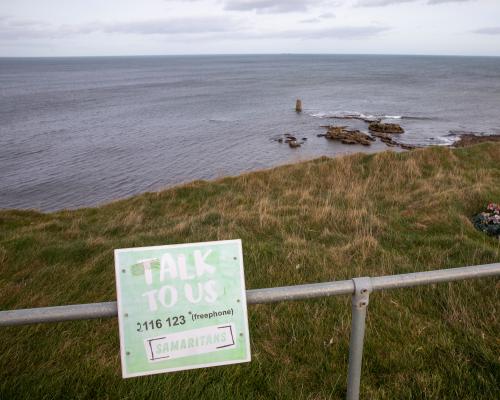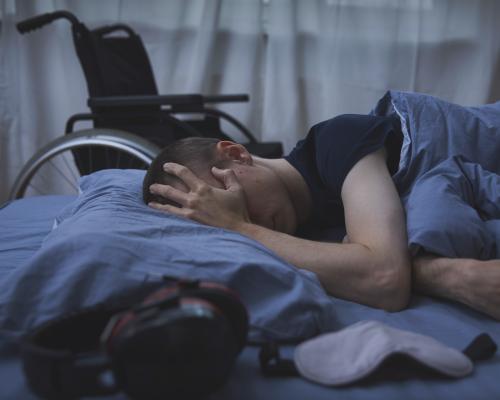
Unlike Peter Ormerod (I was a Samaritan – I love Samaritans. But for the sake of all who take those calls, it must change course, 29 July), I am a still Samaritan, and spent several hours last Tuesday on the phone to some extremely distressed callers. I did that from what was formerly the front bedroom of a ramshackle Edwardian terrace house, which has room for just two workstations.
The words “call centre” have been widely used to depict the charity’s proposed shift to larger, more modern branches. I wonder how many readers who work in comfortable, modern offices housing 20 (or even more) desks would consider themselves marooned in an inhuman “call centre” (or “regional hub” as Ormerod labels them)?
Because Ormerod is no longer a Samaritan, he perhaps has not had access to the FAQs for volunteers, which note that nobody will be asked to work on their own. As many readers will experience daily, digital technology allows teams to work together when they are not in the same physical space.
Change is really hard. I worked for the Guardian in the 2000s, when it moved from a poorly converted old factory building in Farringdon to brand-new premises in King’s Cross (“the middle of nowhere”, as it was labelled by some staff); from holding back news stories for the next day’s paper, to publishing them first on the website; from keeping the tech team separate from the editorial team, to having them work alongside each other; and from air-freighting copies of the paper to countries where fewer than 100 copies per day were sold, to not doing that.
All these changes were stoutly resisted, particularly by some (not all) longer-serving staff. I wonder how many of these changes would strike today’s Guardian staff as destructive of the spirit of the enterprise?
Tim Brooks
Great Bourton, Oxfordshire
• Having read the article by Peter Ormerod, I have to confess that I felt panic. Many many years ago when I was a single mum with a baby, few friends and no family, I called the Samaritans in the middle of the night. I was not suicidal, but I did feel as if I could no longer cope, that I was breaking apart. Bless the woman that answered my call; she chatted to me for quite some time, was at no point judgmental and gave me strength to go on. Many years later, I was unemployed, so I volunteered at my local Samaritans, went through their training and shadowed existing staff.
There is no way that volunteers should be asked to work from home. There may be some nights when the only calls you get are from troubled individuals seeking self-gratification, but it is possible that the next call you take will be from someone about to cut short their life, or maybe no one speaks but you can hear in the background awful sounds of abuse. Once that call has finished, you need to be with someone who can empathise with you and help you put it from your mind so you do not take it home with you. This cannot be done when working from home.
Samaritans should not put volunteers’ own mental health at risk – it is hard enough as it is.
Ilona Notley
Norwich
• I volunteered with the Samaritans for 12 years across two branches. I left on the day that I found myself getting too emotional about two consecutive calls. Up until then I had never left a branch with a call hanging over me. Any difficult call and you get to debrief with the other Samaritans on your shift. This was essential, talking to a real person, face to face over a cup of tea, in a private room.
I met and chatted with Chad Varah, the Samaritans founder, in a dinner queue at a conference. He was impressed that I was a younger volunteer; I was impressed with the way he was still a slight irritant to the then “management”. His attitude that you should never put the phone down on callers – even sex callers – was correct. My fellow volunteer, Karen, said she had never put the phone down on anyone: she just treated them like any other caller in crisis and either they would put the phone down on her in frustration; or, as frequently happened, they turned into genuine callers – men (it was nearly always men) who were lonely, unloved, sad.
I gave talks to a variety of organisations and schools about what we did. I was keen to encourage more transparency about the Samaritans (the thinking then was that you should not tell people you were a Samaritan in case a caller called up and got you, someone they recognised). This decision to close branches in favour of remote working is shortsighted. I think I should still be worried about the management even now. I’m sure Chad would be thinking the same.
Colin Kerrigan
Haslemere, Surrey
• I have volunteered for Citizens Advice for many years in several small offices at several different times in my life. I am retired now, have skills and experience to offer, would dearly like to use them again for Citizens Advice but the only options are to work in a large noisy impersonal phone hub or to take calls from home. Neither are possible for me – the former is too distant and too noisy and stressful, the latter is emotionally terrifying. So Citizens Advice has lost me. Samaritans will lose many like me if it follows its current plans.
Cathy Hill
Sheffield






